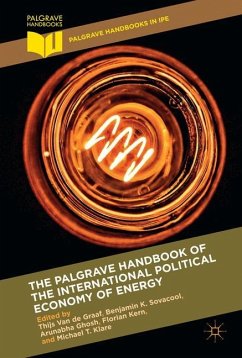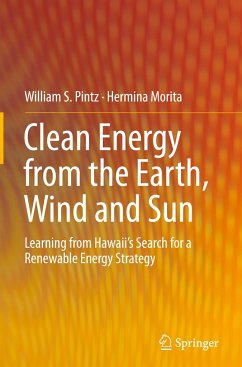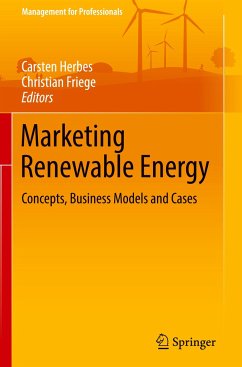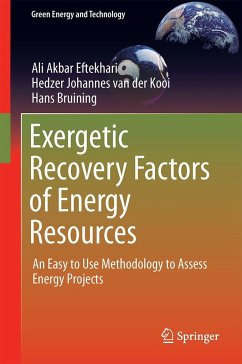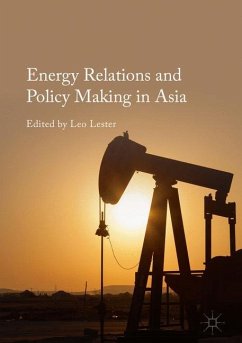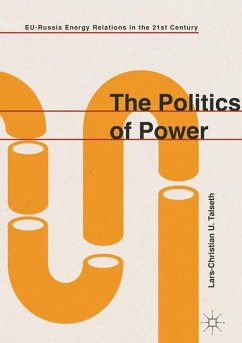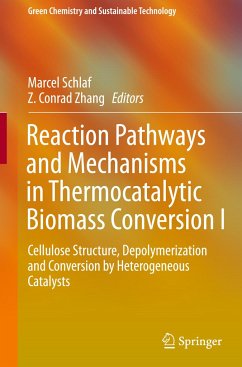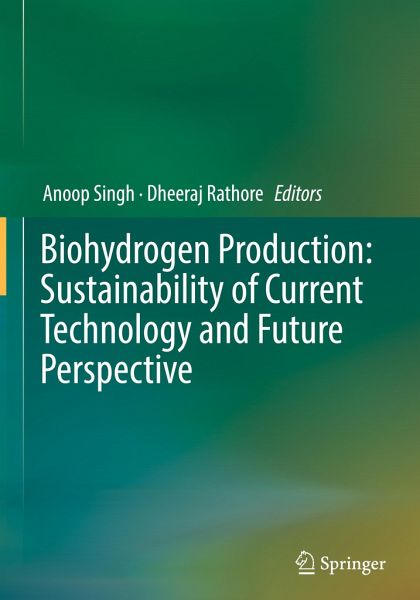
Biohydrogen Production: Sustainability of Current Technology and Future Perspective

PAYBACK Punkte
38 °P sammeln!
Increase in green, renewable and sustainable energy demand due to higher environmental impacts (e.g. Greenhouse gases emissions, climate change, etc.) on consumption of fossil fuel resource put down an extra pressure on government, researchers and industrialists. Among several available biofuel options, biohydrogen is considered as one of the best environmentally clean fuel and a strong candidate to fulfil the future demand of sustainable energy resource. Although, biohydrogen production technology and its use as a fuel is still in infancy stage. Selection of most sustainable production pathwa...
Increase in green, renewable and sustainable energy demand due to higher environmental impacts (e.g. Greenhouse gases emissions, climate change, etc.) on consumption of fossil fuel resource put down an extra pressure on government, researchers and industrialists. Among several available biofuel options, biohydrogen is considered as one of the best environmentally clean fuel and a strong candidate to fulfil the future demand of sustainable energy resource. Although, biohydrogen production technology and its use as a fuel is still in infancy stage. Selection of most sustainable production pathway, increase in production upto industrial scale and cost efficiency are some issue still persist with the biohydrogen research.
"Biohydrogen Production: Sustainability of Current Technology and Future Perspective" is giving an insight for the sustainable production of biohydrogen at industrial scale. The process of biohydrogen production is complex and to opt the best suitedproduction system for industrial scale is a frantic task. This book will provide an in depth information on all available technologies for biohydrogen production and feedstock options to choose upon. This book is also providing information on present status of the research in the field and possibility to change future fuel economy in to biohydrogen economy.
Experts views provided in the chapters by renowned researchers from all over the globe in the field of biohydrogen research made this book a cornucopia of present research and future perspective of biohydrogen. This book is targeted at the researchers working on biohydrogen as well as the bioenergy scientist planning to move towards biohydrogen research. This book will provide a platform for motivation of researchers and industrialists for innovative ideas and thoughts to bring biohydrogen production at industrial scale.
"Biohydrogen Production: Sustainability of Current Technology and Future Perspective" is giving an insight for the sustainable production of biohydrogen at industrial scale. The process of biohydrogen production is complex and to opt the best suitedproduction system for industrial scale is a frantic task. This book will provide an in depth information on all available technologies for biohydrogen production and feedstock options to choose upon. This book is also providing information on present status of the research in the field and possibility to change future fuel economy in to biohydrogen economy.
Experts views provided in the chapters by renowned researchers from all over the globe in the field of biohydrogen research made this book a cornucopia of present research and future perspective of biohydrogen. This book is targeted at the researchers working on biohydrogen as well as the bioenergy scientist planning to move towards biohydrogen research. This book will provide a platform for motivation of researchers and industrialists for innovative ideas and thoughts to bring biohydrogen production at industrial scale.



